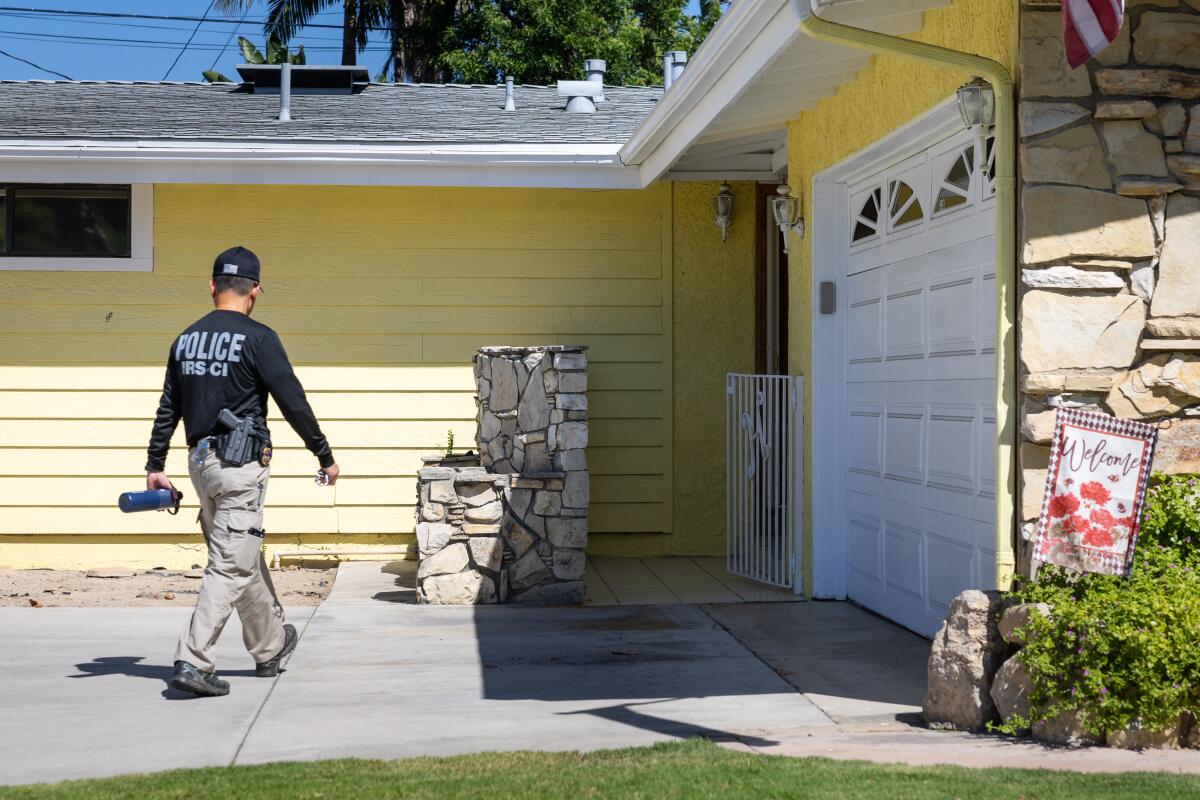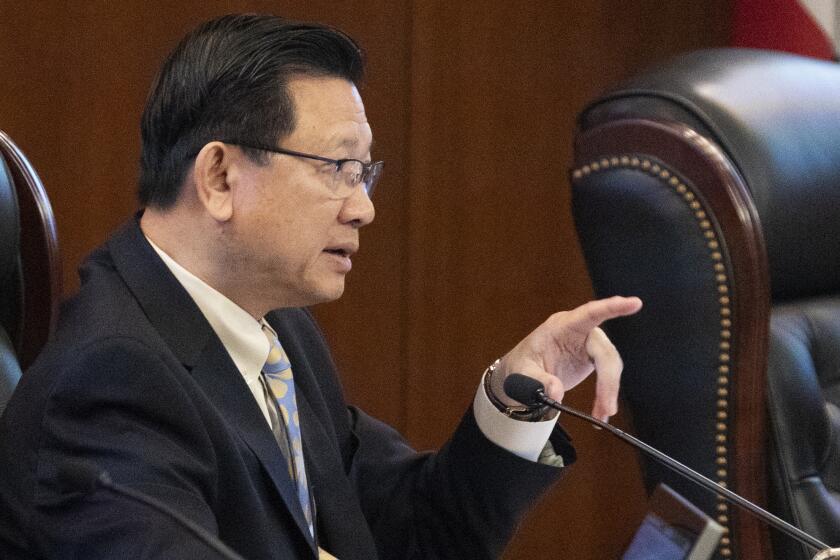O.C. Supervisors urge DOJ to reassess Andrew Do’s plea deal

- Share via
The Orange County Board of Supervisors is asking the U.S. Attorney’s Office and the U.S. Department of Justice to review and reassess former Supervisor Andrew Do’s potential sentence two months ahead of his next scheduled court date.
In October, Do admitted guilt in steering more than $10 million in federal pandemic relief funds through a nonprofit connected to his daughter, Rhiannon, for personal gain.
He received more than $550,000 in bribes from the funds intended to provide meals to elderly Little Saigon residents during the pandemic’s early days.
Do pleaded guilty to a single conspiracy charge and faces a maximum of five years in federal prison when he goes before a judge on June 9.
Prior to that, supervisors passed a resolution on Tuesday that called the potential sentencing one “that fails to reflect the full scope of his self-dealing and corruption.”
Former Anaheim Mayor Harry Sidhu was sentenced Friday to two months in federal prison in a sprawling FBI corruption probe linked to the since-scuttled sale of Angel Stadium.
Supervisor Janet Nguyen, who won election to fill Do’s vacated seat, helped spearhead the effort earlier this month. But supervisors deadlocked on the original resolution presented during the April 8 Board of Supervisors meeting and asked county counsel for guidance.
A revised resolution brought back on Tuesday found more political support as it struck references to the plea deal as “rushed,” adding language alleging misconduct by Do in having received privileged emails between supervisors and county counsel related to plea negotiations and other confidential matters after he resigned.
Supervisor Vicente Sarmiento, who wanted county counsel to file an amicus brief and a victim impact statement in the case, spoke in favor of the resolution.
“It is an irregular path that we’re taking, but I think these are instances that shock the conscience,” he said. “These are instances that are outrageous.”

In a statement provided after the meeting, Paul Meyer, an attorney for Andrew Do called the resolution “reprehensible” and “a blatant attempt to assert political influence in a federal matter.”
The resolution, in making its case, cited stiffer sentences for other public officials convicted of corruption and bribery, including former Los Angeles Deputy Mayor Raymond Chan, who received a 12-year sentence last year for accepting more than $750,000 in bribes.
Supervisor Don Wagner, the lone vote against the resolution, took issue with the cases presented in it as cherry-picked and called back to his time in the State Legislature when former state Sen. Ron Calderon got 42 months in prison for accepting more than $150,000 in bribes.
“There are cases where elected officials convicted or pleading to crimes similar to this get less,” he said. “How come that’s not in our resolution? We’re only looking for the ones where somebody gets more than Supervisor Do. It isn’t a fair comparison.”
The county’s purchasing agents are being brought under the chief executive’s office in a move O.C. supervisors hope will curb future corruption.
Nguyen limited her comments during the meeting, but thanked representatives of the Vietnamese American community who came out in support of the resolution.
Phat Bui, a former Garden Grove councilman, shared a letter from the Vietnamese American Federation of Southern California, where he serves as president, when speaking before supervisors.
“Former supervisor Andrew Do is a lawyer [and] husband of a judge,” Bui said. “He should know the law. The crime that he committed is so severe that a five-year plea deal is not suitable.”
Wagner pushed back against the email controversy in suggesting what kind of conversations Do had with his attorney prior to the county being informed of the correspondences cannot be known.
“All we know is that at some point, supervisor Do contacts his lawyer and says, ‘I’m getting these emails,’” he said. “The district court judge can inquire of the lawyers, and to the extent he can get an answer without breaching attorney-client privilege, he can do it. We cannot.”
Wagner found himself in the minority.
Board Chairman Doug Chaffee stated his belief that an amicus brief and victim statement remain as future possibilities.
Until then, the resolution would speak for the county, as it passed 4-1.
“We are a victim and this is a statement from the victim,” Chaffee said of the resolution. “Our money was taken and misspent. We do speak for those who were victimized in the community as well.”
All the latest on Orange County from Orange County.
Get our free TimesOC newsletter.
You may occasionally receive promotional content from the Daily Pilot.






